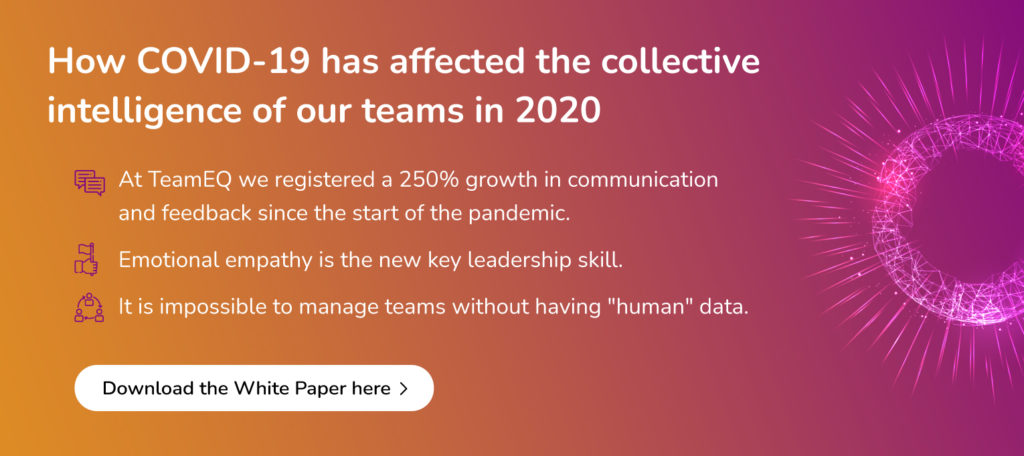Stress: the creativity killer in your team
After a sometimes chaotic and unpredictable year we have realized how great our resilience and creativity can be. And this has given us the opportunity to look around and reflect on what is really important to us in our professional and personal spaces. It is now clear that the line that separates both things is becoming imperceptible, and that, little by little, those spheres are more integrated every day. The stress that affects us at work is something that can no longer be left behind when we close our computer screens and return to our domestic spaces.
Stress in the workplace
This reality is now increasingly recognized by government legislation, which obliges employers to protect the health and well-being of their employees. And that includes, an employer’s responsibility to protect their employees against the problems caused by stress in the workplace.
Stress in the workplace can take on different forms and is not only influenced by common problems in the professional environment, such as lack of motivation or harassment, but also personal issues like the worries of juggling personal and professional obligations.
Added to this are factors emerging today such as changes in the ways we communicate with our teams, job uncertainty and adaptation to a new, more flexible work schedule. All of this leads to what is commonly described as ‘burnout’— a euphemistic term that can hide serious psychological and physical consequences.
‘Burnout’ is a state of exhaustion often accompanied by a feeling of failure and of being overwhelmed by our work commitments. Burnout is a syndrome that was originally thought to affect only certain high-stress occupations (like firemen, doctors, etc.). But now we know that burnout can affect us all.
Burnout at work can have serious consequences. Among these are:
- EXHAUSTION. A lack of energy, feelings of apathy and an inability to contribute.
- DE-PERSONALIZATION. A cognitive distancing that develops into an indifference or a cynical attitude when feeling exhausted and discouraged.
- INEFFICIENCY. A lack of investment in work that reduces a sense of efficiency. A sense of ‘professional failure’ and a loss of responsibility in which it is difficult to obtain a sense of accomplishment.
How to deal with burnout?
The first step for any employee is to increase their capacity to listen and respond to the underlying factors (sometimes below the surface) that can point to the emergence of burnout in their teams. And the key to that is to have the right data available and the ability to accurately analyze that data and transform it into actions.
Platforms like TeamEQ provide the capacity to anticipate and react to the emergence of burnout before it occurs, using predictive AI to drill down into key factors like motivation, well-being and personal satisfaction, providing the data that is essential to give a picture of the situation of teams in regard to their levels of stress.
One of the key causes of burnout is the feeling of a lack of agency and control over life. A platform like TeamEQ encourages continuous feedback and engagement, empowering teams to actively express themselves and participate in a project. This is even more important today, as we rapidly move towards a new working environment and instigate the necessary changes that can make some people feel left behind.
Thanks to the active listening of data provided through the TeamEQ platform, companies can now know in real time what factors are impacting on the stress levels of their employees and take immediate actions to minimize them. As a consequence, commitment, productivity, trust and the common goal of companies increase significantly.
The problem of burnout is multi-layered. And the solution to it often needs to involve a profound cultural shift in the way our companies operate on a human level.
This can seem like a daunting task, but it will be an essential one if we want to thrive in the post-pandemic environment.
The important thing is to start implementing that change now.
Find out how TeamEQ can help to combat stress in your teams by taking a demo today.




